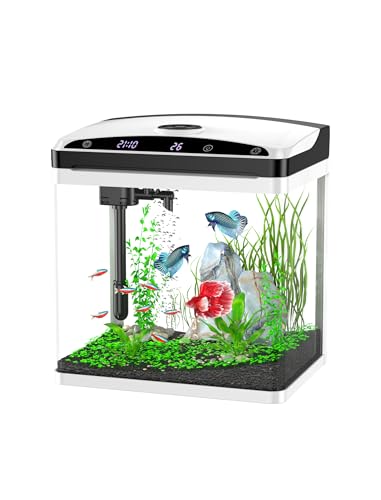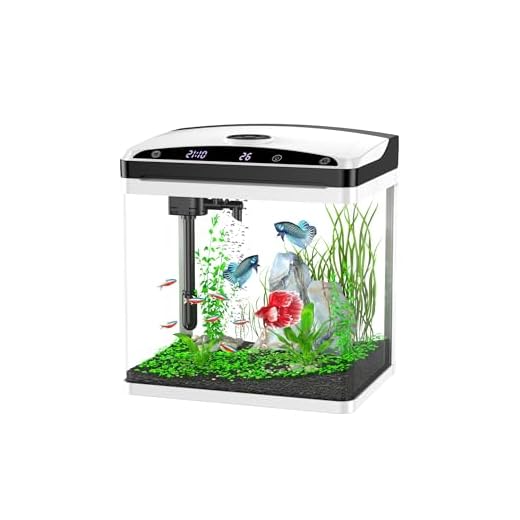


Have you ever pondered the extent of survival instincts possessed by wondrous organisms dwelling in the aqueous realm? In the midst of an intriguing exploration of nature’s marvels lies the enigmatic question: what is the maximum duration an enchanting aquatic creature can endure when stripped away from its natural aquacultural habitat?
Imagine the indomitable spirit of an ethereal entity, its existence entwined with water, yet confronted with the ultimate challenge of temporal separation from its liquid sanctuary. This enigma of nature, often referred to as a “golden swimmer,” is bestowed with the captivating beauty of glistening scales and a bewitching tail that gracefully propels it through the fluid medium. Shall we unravel the secret essence that enables this delicate creature to withstand the perils of existence outside its aqueous refuge?
Behold, as we embark upon a remarkable quest to fathom the resilience embodied within the delicate anatomy of this captivating entity. A symphony of shimmering hues shadowing a body sculpted for aquatic grace, this ethereal being defies the laws of ordinary existence, epitomizing resilience and tenacity. Encased within its delicate frame are mechanisms beyond mortal comprehension, intricately designed to navigate the ebb and flow of life’s uncharted waters.
Survival Skills of the Aquatic Creatures: The Goldfish’s Tenacity Beyond Water
Discovering the remarkable resilience of aquatic species in non-aquatic habitats is a fascinating area of study. This section sheds light on one such extraordinary creature, commonly referred to as Pisces auratus, and its ability to endure prolonged periods without its essential aquatic habitat. Despite its skeletal frame being designed for buoyancy and mobility underwater, the goldfish exhibits astonishing tactics for survival in a terrestrial environment. Let us delve into the intricacies of the goldfish’s remarkable adaptation and uncover the secrets behind its survival beyond the aqueous realm.
1. An Intertidal Specialist
With its dynamic physiological composition, the goldfish can withstand limited exposure to the open air. This remarkable species showcases a variety of mechanisms that allow it to navigate various intertidal environments, such as marshes or flooded areas. The evolution of a specialized respiratory system plays a crucial role in enabling the goldfish to extract oxygen from the surrounding air, sustaining its vital functions, even for a limited period outside of water.
2. A Coating of Adaptability
One of the goldfish’s remarkable traits lies within its unique integumentary system. The resilient skin of this aquatic creature acts as an external barrier against desiccation, providing essential protection against water loss during its terrestrial excursions. This coating, enriched with semi-permeable properties, helps maintain the goldfish’s internal moisture levels, allowing it to temporarily adapt to varying environmental conditions, whether submerged or exposed to air for moderate durations.
Without a doubt, the goldfish’s survival instincts have evolved over time, equipping it with the necessary tools to endure outside its natural aquatic habitat. Although lengthy periods without water are not suitable for this species, its ability to cope with short-term challenges is evident. Understanding and appreciating the remarkable adaptation strategies of the goldfish not only amazes us but also emphasizes the richness and diversity of the natural world around us.
The Remarkable Adaptability of Goldfish: Enduring Life Beyond Aquatic Boundaries
When faced with changing environmental conditions, certain species have evolved extraordinary abilities to adapt and survive. The goldfish, considered a symbol of good luck and prosperity, showcases an astounding aptitude to thrive outside its natural aquatic habitat. Through a combination of biological features and physiological adaptations, these graceful creatures can endure moments of non-aquatic exposure.
Evolutionary Background: Unlocking the Secrets of Goldfish Adaptation
Over centuries of evolution, goldfish have developed a set of unique physiological traits that enable them to endure brief periods of time outside their watery homes. Through a process known as evolution by natural selection, goldfish have acquired remarkable adaptations, allowing them to overcome the challenges posed by temporary removal from a water source. These adaptations include specialized gill structures, enhanced respiration mechanisms, and modified skin features, aiding them in conserving moisture and facilitating respiration during non-aquatic intervals.
Surviving in a Terrestrial Landscape: Insights Into Goldfish Survival Strategies
When a goldfish is temporarily removed from water, its specialized gill structures play a crucial role in respiratory adaptation. These gills, highly efficient in extracting oxygen from water, can also absorb limited amounts of atmospheric oxygen, albeit less efficiently. In addition, goldfish possess a modified skin structure that aids in retaining moisture and prevents excessive water loss, allowing them to tolerate short-term dehydration. Their ability to extract oxygen through both their gills and skin showcases an exceptional adaptation that sets them apart from many other aquatic creatures.
Furthermore, goldfish have developed mechanisms to conserve energy during non-aquatic exposure. By dramatically reducing their metabolic rate and entering a dormant-like state, these remarkable creatures can withstand extended periods without water. This survival strategy enables goldfish to endure hostile conditions, such as periodic droughts or being inadvertently stranded outside their aquatic habitat.
The table below summarizes the key adaptations and survival strategies that allow goldfish to survive outside of water for varying periods:
| Adaptations | Survival Strategies |
|---|---|
| Specialized gill structures | Facilitate respiration during non-aquatic intervals |
| Modified skin structure | Aids in moisture retention and prevents excessive water loss |
| Metabolic rate reduction | Allows goldfish to enter a dormant-like state during non-aquatic exposure |
Despite their remarkable adaptability, goldfish should not be subjected to extended periods without water, as it can lead to stress, health issues, and ultimately, their demise. It is important to recognize their incredible adaptations but also ensure their well-being by maintaining a suitable aquatic environment.
Exploring the Boundaries: Understanding the Duration Goldfish Can Survive Outside their Aquatic Habitat
This section delves into the fascinating realm of goldfish physiology, shedding light on their remarkable ability to endure temporary periods outside the water.
The Adaptive Respiratory System
Goldfish, like most aquatic vertebrates, possess specialized respiratory organs called gills, which facilitate the exchange of gases necessary for survival. These delicate structures extract oxygen from the water, ensuring the continuous supply needed to fuel the fish’s metabolism. However, in limited circumstances, goldfish can rely on alternative mechanisms to obtain oxygen when deprived of their aquatic environment.
An Emergency Survival Mechanism: Air Breathing
When faced with oxygen-depleted water or the absence of water altogether, goldfish exhibit an extraordinary adaptation known as air breathing. This unique ability enables them to gulp air from the atmosphere, extracting the vital oxygen required for short-term survival. Unlike their gill-based respiration, air breathing poses a significant challenge to goldfish, as their respiratory system is not specifically designed for this purpose.
While the duration of time a goldfish can survive out of water varies based on various factors such as species, age, and environmental conditions, it is generally accepted that they can withstand brief periods ranging from a few minutes to several hours. It is important to note, however, that extended exposure to air can be detrimental to their overall health and longevity.
Understanding the limits of a goldfish’s ability to survive out of water plays a crucial role in ensuring their welfare as domestic pets. By providing an optimal aquatic environment and taking proactive measures to prevent accidental removal from water, enthusiasts can help maintain the well-being and vitality of these beloved aquatic companions.
Factors Affecting Goldfish Survival Out of Water: Temperature, Humidity, and Stress
When a goldfish is removed from its aquatic habitat, it is faced with a multitude of challenges that can significantly impact its survival. Understanding the various factors that influence a goldfish’s ability to survive out of water is crucial for pet owners and researchers alike. This section delves into three key factors: temperature, humidity, and stress.
Temperature
The temperature surrounding a goldfish plays a vital role in determining its survivability out of water. Extreme temperatures, whether too hot or too cold, can be detrimental to the goldfish’s well-being. High temperatures can lead to dehydration and overheating, while low temperatures can cause hypothermia and metabolic issues. Maintaining a suitable temperature within the goldfish’s environment is essential for its survival.
Humidity
Humidity levels also significantly impact a goldfish’s ability to survive out of water. Without the natural moisture of its aquatic environment, the fish becomes susceptible to dehydration. Adequate humidity helps prevent excessive water loss through the fish’s skin, gills, and other respiratory surfaces. Balancing humidity levels is essential to ensure the goldfish’s physiological processes continue functioning properly outside of water.
Stress
Goldfish, like all living creatures, experience stress when removed from their familiar aquatic surroundings. The stress response can have significant physiological and behavioral effects on the fish, potentially leading to compromised health and reduced survivability. Minimizing stress during the transition period is essential to improve the goldfish’s chances of adapting to a non-aquatic environment.
- Environmental temperature affects the goldfish’s survival.
- Humidity levels impact water loss and the goldfish’s overall well-being.
- Stress from the unfamiliar environment can hinder the goldfish’s ability to survive.
By considering these factors and implementing appropriate measures to mitigate their negative effects, goldfish owners can increase their pets’ chances of surviving and thriving outside of water.
Rescuing Your Beloved Pet: Emergency Measures for an Unexpected Aquatic Adventure
In the event of an unforeseen and curious adventure involving your cherished aquatic companion, it is essential to be equipped with the knowledge and skills necessary to swiftly intervene and save your beloved goldfish from distress. This section aims to provide you with essential guidance on emergency measures to take when your gilled friend finds itself unexpectedly separated from its natural aquatic habitat.
1. Swift Retrieval: The first step in rescuing your goldfish from this peculiar predicament is to swiftly retrieve it from the environment devoid of the vital element it needs to survive. The delicate nature of a goldfish demands immediate attention to prevent any potential harm or complications.
2. Gently Handle: Once you have successfully retrieved your goldfish from its dry ordeal, it is crucial to handle it with the utmost care. Use gentle and supportive motions to avoid further distress to your pet. Remember, time is of the essence, so act promptly yet delicately.
3. Prepare a Proper Environment: Indispensable to the revival of your goldfish is the swift creation of a suitable aquatic environment. Fill a clean container with fresh water at a temperature appropriate for your species of goldfish, ensuring it is free from chlorine and other harmful additives.
4. Slow Submergence: Lower your rejuvenated companion into its newly prepared aquatic haven, making sure to introduce it gradually to avoid any potential shock. By allowing the goldfish to slowly adjust to the water, you maximize its chances of transitioning back to its natural habitat.
5. Observe and Monitor: After ensuring that your goldfish is comfortably settled in its revived aquatic abode, diligently observe and monitor its behavior and vital signs. Watch for signs of distress or abnormalities and consult a veterinarian if necessary.
Please note that the above measures are designed to serve as initial emergency steps and do not substitute for professional veterinary care. It is always recommended to seek expert advice to ensure the well-being and proper recovery of your beloved goldfish.







